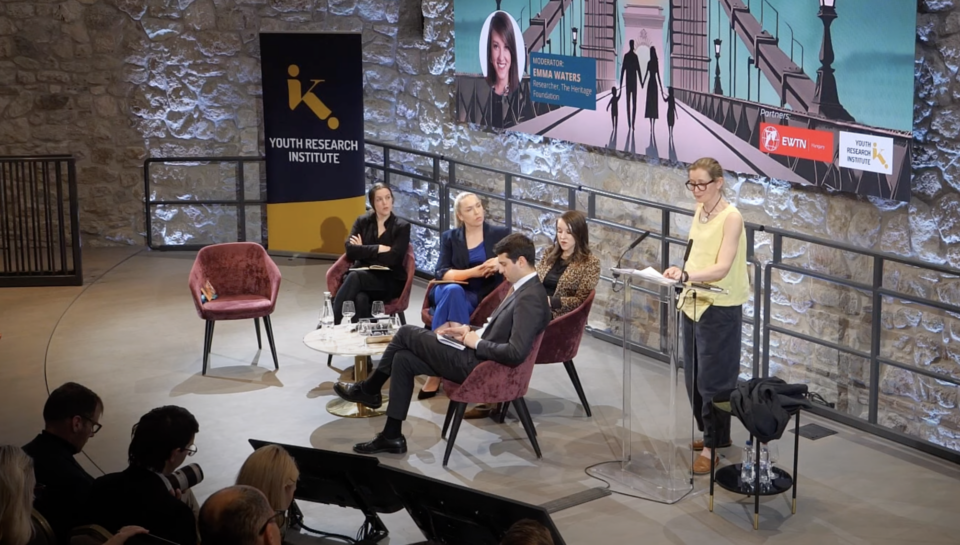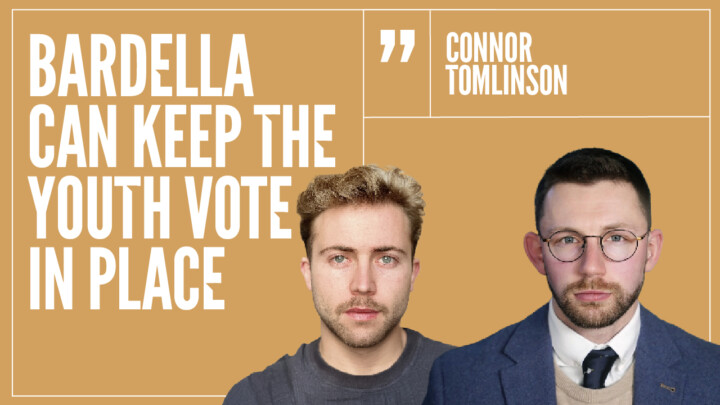|
In the face of the global decline in birthrates, every country has three options. The Western model: low birth rates and migration. The East Asian model: low birth rates and no to low migration, and the Hungarian model: improve birth rates with no to low migration. So began István Kiss, the Executive Director of the Danube Institute, which hosted the vital recent two-day conference in Budapest “Family Formation and the Future” (videos of the talks are already up).
It is admiration for Hungary’s efforts to buck the trend and create a society that is genuinely family-first that brings the speakers, many of them American, to this excellent city. Hungary, as Balázs Hankó, the Hungarian Minister for Culture and Innovation, pointed out, is battle-hardened. Its long history of division and occupation gives Hungary’s current bid to take hold of its destiny an epic quality, as well as presenting a model for other countries to learn from.
The EU’s punishing of Hungary—as of last year, the country is forced to pay 1 million euros a day for its purported failure to comply with asylum laws—is severe. But one is left with the impression that Hungary will never relinquish its sovereignty, and why should it? We have seen how Europe is punishing any populist leader who dares to channel what the people think: on the question of protecting its future, Hungary is simply not suicidal.
Countries that opted for immigration to replace populations have faced extremely negative consequences, ranging from a further depression in the birth rate of the native population, lowering wages, and the cultural and social impacts of non-assimilation. As Philip Pilkington pointed out, there are two drivers of growth: productivity and population growth. Many countries have opted to emphasize productivity at the expense of population, causing stagnation. This is, to say the least, madness. With Trump’s latest tariff move, we are perhaps seeing the end of the neoliberal project: will other countries be able to follow suit, prioritizing natives, and valuing families in particular? Will children remember their filial duties to take care of their ageing parents? How might this work (or not) with the need to labor?
Via a variety of income tax breaks and other incentives, Hungary now has the third-highest birthrate in Europe, behind Bulgaria and France (though none are at the replacement rate of 2.1 children per woman). Interestingly, for those who baulk at the idea of providing incentives for women to have children, Hungary has closed the gender pay gap. Three years maternity leave is covered, and tax deductions can also be used by fathers. There is work for everyone. Divorce rates have been cut in half. Walking around Budapest, the visitor is struck by the number of playgrounds, the peaceful atmosphere, and an ambient sense of trust and hope. It is perhaps too soon to say whether Hungary’s efforts will pay off, but their vision is undeniably positive, and already creating a family based less on the consumerist, liberal subject than on the family as the cornerstone of the whole society.
Balázs Orbán, Prime Minister Viktor Orbán’s Political Director, spoke convincingly of both the collapse of the liberal world order and the need for small nations to be renewable. The liberal order, he said, assumes that its values are universal, but also cannot reproduce the foundations—in the west, these are Christian—of its own existence. Many of the speakers spoke openly about their faith, and many talked about having six or seven children. Astonishing!
But why is the birth rate collapsing, more or less everywhere? This is a deep and difficult question. Speakers referenced the anti-natalism of progressive ideology, particularly the “green” idea that human beings are parasites; some spoke about the collapse in ideas of responsibility, duties, community, the reduction in church-going and a nihilistic turn away from transcendence. Others noted problems in young people having access to housing and how economic insecurity prevents commitment to marriage and children. There were references to the sexual revolution, divorce, the pill, abortion, modernity-caused infertility, the opioid crisis and pornography. Fatherlessness, particularly in the UK and US was invoked (former MP Miriam Cates spoke about how parental separation now features in nearly 50% of UK families). Brad Littlejohn spoke passionately about “screen-based childhoods” and the robbing of childhood via early exposure to violent and sexual imagery. He pointed to the power of alliances between unlikely bedfellows: radical feminists, mothers, traditionalists, conservatives and religious people in the bid to protect childhood.
|





